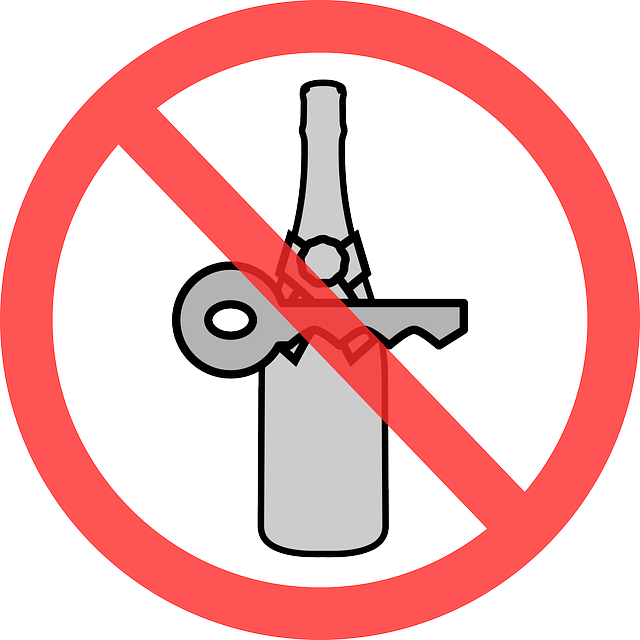In many jurisdictions, first-time offenders facing impaired driving charges often receive a second chance. This nuanced approach to justice balances public safety with an understanding of contextual factors. Our article delves into the multi-faceted issue of impaired driving, examining its impact on mental health and the role of the justice system in offering rehabilitation paths. By exploring success stories and policy changes, we highlight how second chances can transform lives while emphasizing the importance of comprehensive support for those facing this challenge.
- Understanding First-Time Offenders: A Look at the Context
- The Impact of Impaired Driving on Mental Health
- The Justice System and Its Approach to First-Time Offenders
- Providing Support for Rehabilitation and Recovery
- Success Stories: Second Chances that Transformed Lives
- Policy Changes and Their Role in Preventing Future Incidents
Understanding First-Time Offenders: A Look at the Context

First-time offenders, especially those facing charges related to impaired driving, often enter the legal system with a unique set of circumstances. Understanding their context is crucial in determining appropriate outcomes. Many first-time offenders may be young individuals who, due to curiosity, peer pressure, or underlying mental health issues, find themselves in situations where poor judgments are made. Impaired driving, for instance, can result from a variety of factors, including stress, anxiety, or undiagnosed conditions like depression, which significantly impact decision-making abilities.
Recognizing these nuances is essential as it allows for more empathetic approaches to rehabilitation and reintegration. Mental health plays a significant role in such cases, as many young people might not fully comprehend the consequences of their actions until confronted with the legal repercussions. This perspective highlights the need for tailored support systems that address both the criminal offense and any underlying mental health concerns, offering a second chance at positive growth and change.
The Impact of Impaired Driving on Mental Health

Impaired driving, often driven by factors such as alcohol or drug abuse, can have profound effects on an individual’s mental health. The immediate consequences include severe stress and anxiety, not just from the legal repercussions but also from the fear of harm caused to oneself and others. This can lead to acute trauma, with many first-time offenders experiencing prolonged feelings of guilt, shame, and depression.
Longer-term effects are equally significant. Repeated instances of impaired driving can contribute to the development or exacerbation of mental health disorders like anxiety disorders and depression. The stigma associated with these incidents can also negatively impact self-esteem and social interactions, creating a vicious cycle that compounds both the mental and emotional challenges faced by these individuals.
The Justice System and Its Approach to First-Time Offenders

The justice system, in its pursuit of fairness and rehabilitation, often takes a distinct approach when dealing with first-time offenders, especially those facing charges related to mental health and impaired driving. This sector of the legal system recognizes that individuals’ first encounters with the law can be shaped by a variety of factors, including undiagnosed or untreated mental health conditions and the influence of substances.
As such, many jurisdictions implement specialized programs and alternative sentencing options tailored to address these unique circumstances. The goal is not solely punitive but also to provide support, treatment, and guidance, ensuring that first-time offenders have a chance at turning their lives around. This approach underscores the understanding that addressing underlying issues can lead to successful rehabilitation and reduce the likelihood of future offenses, particularly in cases of impaired driving stemming from mental health challenges.
Providing Support for Rehabilitation and Recovery

Supporting first-time offenders with rehabilitation and recovery is crucial, especially for those impaired by mental health issues related to driving under the influence. Access to counseling and therapy services can play a pivotal role in addressing underlying problems that may have contributed to their actions. These services help individuals understand and manage their mental health conditions, thereby reducing the likelihood of reoffending.
Community-based programs focused on reintegrating these offenders back into society are equally important. Support groups, mentorship schemes, and job training initiatives can empower them to rebuild their lives and develop healthier coping mechanisms. By providing comprehensive care that addresses both the legal consequences and personal struggles, we can foster a more successful transition and promote positive change for first-time impaired drivers looking to turn their lives around.
Success Stories: Second Chances that Transformed Lives

Policy Changes and Their Role in Preventing Future Incidents

Policy changes play a pivotal role in preventing future incidents of impaired driving, especially among first-time offenders. Many jurisdictions have implemented stricter laws and penalties, recognizing that mental health issues often contribute to such behaviors. By addressing these policies, governments can send a clear message that impaired driving will not be tolerated, while also offering support for those with underlying problems.
For instance, mandatory education programs and treatment options for individuals with substance abuse or mental health disorders can be integrated into the justice system. These initiatives ensure that first-time offenders receive the help they need to turn their lives around. Such interventions can significantly reduce recidivism rates, ultimately making roads safer for everyone.
In addressing first-time offenders and impaired driving, a multifaceted approach focusing on mental health support, justice system reform, and rehabilitation is crucial. By understanding the context behind these offenses and implementing policy changes that promote second chances, we can effectively prevent future incidents while fostering transformation and recovery for those involved. Mental health considerations play a significant role in both the root causes of impaired driving and successful rehabilitation outcomes, underscoring the need for integrated support systems.






